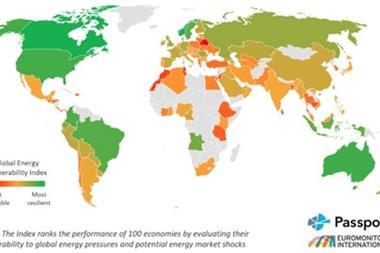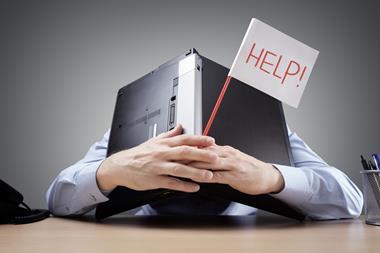Any food processing company wishing to expand into Eastern Europe should keep in mind the experience of Viktor Kolesnikov. When Viktor headed a Ukrainian trade delegation to the Russian Federation for trilateral talks that included a group from the US government's Department of Agriculture, he ran up against trade barriers that can affect any importer anywhere, but will create particular problems for those who invest in processing plants in Eastern Europe and especially those importing into Russia.
The problem centres upon a tangle of political and other concerns grounded ostensibly on health and safety standards and how to ensure them. While the talks themselves were devoted to tense discussions over America's export to Ukraine and Russia of genetically modified foods that were not packaged to reflect the nature of the ingredients, it took place against the background of a growing trade conflict between the European neighbours.
While the January 2006 gas crisis made world media headlines, the simmering conflict between Ukraine and Russia was also focused on agricultural products and food safety. A January 20 ban on all meat fish and dairy imports into Russia from Ukraine was explained by the fact that the imports had not met food safety standards. An inspection tour by Russian officials in March resulted in six dairy producers being allowed access to the market, and, in late April, a training conference was held in Kyiv to bring more companies up to date on Russia's requirements.
Despite reports that some meat smuggled across Ukraine had been brought into Russian, Kolesnikov says that the firms themselves are well-regulated. "The producers pointed to the political timing of the restriction, and the fact that the imports halted were from a wider range of products than those where any individual problems had occurred." He also pointed to the international standards adhered to by the Ukrainian Ministry of Agriculture in its domestic regulations, and which the Russian side is beginning to require.
Viktor Kolesnikov has a thorough understanding of the state of agricultural producers, as his firm assesses the Ministry's laboratories as well as the producers with regard to International Standards Organisation (ISO) standards as well as other standards platforms used world wide. This is a help in demonstrating that the products meet easily recognised quality control levels, but, as he admits, these standards can be used for political purposes as well as product quality control.
"Every dairy producer in Ukraine is required to meet national standards," Kolesnikov says, "and for a while this was good enough for the Russian side. The reason for this is that until recently we used the same technology that their domestic suppliers do." State certification existed in the USSR, and there was a program of 'Soviet Quality' in which everything that met the criteria for export was stamped. "You can still find old pots and pans and see the occasional truck with the 'Soviet Quality' mark on them. Russia and Ukraine both inherited the same quality control systems and the same approaches to standards by management when the Soviet Union broke apart."
Since then, standards certification in Eastern Europe has been affected by the different social and economic factors in each country. "As a result, there are different approaches to the same ends, and this has been used for mutually limiting each other's access to markets.
"When the aim is to minimise competition, the differences in approach can create formal grounds for lack of trust in quality, even of certified products. Meat and dairy products are particularly vulnerable to this argument. In our case, the Russian stance is that they do not recognise Ukrainian quality certifications." Their reasoning is that the certification is based on selected samples, and so there is no guarantee that every individual item meets the same levels.
While a statistical approach can be used in developed countries with a good degree of confidence, there are issues in emerging markets such as Ukraine and Russia that do give grounds for the call for greater certainty. Smuggled products are a problem, and Russia's product restrictions stemmed from an incident involving low-grade meat smuggled through the port of Odessa and into Russia using fake New Zealand health certificates.
"What the Russians are calling for is the application of international standards, especially those created by the ISO. ISO registration of a firm is useful, but there are ways of using this for political purposes as well," Kolesnikov points out. "The trilateral talks in Moscow highlighted the challenges that producers from smaller countries will face in the future when trying to import goods and services into earnestly protected markets."
On the surface, Russia is calling for the application of standards which will objectively raise health and food quality levels among the companies which choose to enter the market. While American agro-industrial companies already meet or exceed these standards, many companies in neighbouring countries will have some catching up to do. "Around the former Soviet Union, and especially in those states that have accelerated the process of distancing themselves from Russia, ISO assessors are reminding firms scrambling for the relevant qualifications that they had been warned that this would eventually happen. While exporters looking at EU and North American markets had already been through the ISO registration procedure, those focusing on the Commonwealth of Independent States, and especially Russia, had assumed that domestic quality certificates would remain sufficient."
Another expectation on the Russian side is that product certification alone is not enough. The producer will now have to show a certified management system which not only makes the quality level of the company's products predictable, but also ensures constant improvement in health and quality standards. ISO 9000 series certification will become a standard in the industry within Ukraine, if only because of the focus on exports.
One feature of an emerging market that will also impact on the ability to import products is the recognition of certification bodies and registries. This can be seen in other industries, a good example being the necessity to register intellectual property rights in China (and at one time, Ukraine) before software piracy cases are considered there. In the fight to protect national interests, the insistence on using local bodies to certify what is commonly recognised on an international basis is a long-standing tool. World Trade Organisation membership does largely eliminate the use of this tool, but it is used effectively in countries with the relevant infrastructure.
"The Americans found this to be a problem, and it was a source of tension in our talks," Kolesnikov says. "Ukraine didn't have much of a choice over allowing Russian inspectors to visit our plants, and tour our government laboratories that certify meat and dairy products. But the American delegation stuck to the idea that their laboratories were more than sufficient, while the Russians maintained that their own were not only up to the task of testing American products, but were the only ones that would do, especially for proving that products did not contain genetically modified material."
As well as the national requirements regarding testing, labelling specifics can be used in trade disputes. The Moscow roundtable talks focused on the difference between the American lack of labelling of genetically modified content and the Ukrainian and Russian requirement for it. "The talks were very tense at times, and they covered the whole gamut of product quality assurance," Kolesnikov adds.
Spurring development
Politics aside, Russia's demands for improved product certification will ensure that dairy and meat producers throughout the region achieve internationally recognised quality levels. While imports from Ukraine account for approximately 5% of Russian meat consumption, the lack of popular imported dairy products traditionally considered as low-priced and high quality on Russian shelves is noticeable, and Russia's own production capacity is already stretched. Given the demand, properly accredited dairy firms will find a ready market for their wares. "In the end," Kolesnikov notes, "the process is objectively useful in spurring the development of individual companies on the market. Also, the necessity for further harmonisation of requirements from different countries with different approaches to standards can be solved both by means of international talks between governments, and by individual companies meeting those requirements, often in advance. We see this happening on environmental issues, in particular, and ISO 14000- related issues are a popular topic of conversation in the standards community here."
The training of specialists is also seen as a key to ensuring a common understanding regarding product quality. This is being done in this case through a joint effort by the Gorbatov Pan-Russian Research Institute of Meat Production and Ukraine's Medvyd Institute of Ecological Hygiene and Toxicology. Private industry often plays a mediating role, and Kolesnikov's Canadian-registered SIC Inc., an international standards assessing firm, was called in to help organise a seminar.
Once meat and dairy importers to Russia meet the current requirements, however, they will find further tasks ahead. "We can already see that once ISO requirements are met by those wishing to import to Russia, there will be a move to tighten standards yet again," Kolesnikov warns. "The next level in stringency, Health Approved Safety Standards Protection (HASSP), is already the standard being used by forward-thinking companies in Russia, so it is a familiar concept." One limiting factor in raising laboratory-confirmed standards, especially regarding genetically modified material, he notes, is the need for equipment beyond the means of some regulatory bodies. "The Americans aren't worried, because they have all the testing hardware already. For them it's a matter of deciding to use it. For most CIS countries, these are new considerations. The Ukrainian government has been buying hardware against the day it will need to certify against more stringent requirements."
While current trade issues in Eastern Europe are centred upon food products such as Ukrainian cheese, Georgia's Borjomi mineral water and Georgian and Moldovan wine, Viktor Kolesnikov says that producers of other goods cannot be complacent when considering their exports to emerging markets. "The import quality card is an easy one to play, and sits well with domestic audiences. Producers in other market sectors will see it played as well. It's only a matter of time."
- James Hydzik is a freelance writer.



















